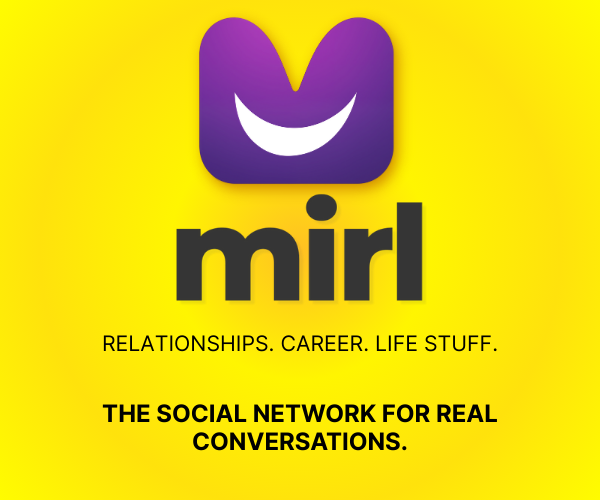30 Little Qualities in a Partner That Secretly Predict Long-Term Love

Skip the fluff. These are the most important qualities in a partner that actually matter if you want love that goes the distance.
Wondering what are the most important qualities in a partner that you need to look for, for a happy romance? Well, attraction might get you through the door, but it’s character that keeps the lights on.
Ever dated someone who looked great on paper but gave you chronic trust issues, anxiety, or existential dread?
The truth is, what we think we want (height, hobbies, hairlines) often blinds us from what we need, the stuff that builds real connection, safety, and long-haul love.
[Read: What to Look For in a Relationship: 23 Traits of a Happy Romance]
The Most Important Qualities in a Partner for a Happy Romance
Because here’s the thing, every situationship, ghosting, or emotional rollercoaster teaches you something. Eventually, you stop asking, “Are they into me?” and start asking, “Can I actually build something real with this person?”
That’s the switch. And once it flips, these are the traits that matter more than any checklist of aesthetics or surface-level charm.
[Read: Situationship: Why People Like It, 51 Signs, Rules & Ways to Tell If It’s For You]
Let’s get into the qualities of a partner that truly count, the ones backed by science, psychology, and probably your therapist if you asked them.
1. Kindness That Isn’t Just for Show
Genuine kindness is underrated until you’ve dated someone who treats baristas like NPCs and only turns on the charm when people are watching. Real kindness is low-key but constant.
It’s shown in the little things: sharing their fries without being asked, remembering your mom’s birthday, checking in when you’re quiet. [Read: 67 Sweet Yet Small Romantic Gestures that Show Love in the Biggest Way]
Kindness is one of the top qualities desired in long-term partners across cultures. It’s a relationship green flag with global approval ratings.
📚 Source: Buss, D.M., et al. (1990). International preferences in selecting mates: A study of 37 cultures
2. Emotional Intelligence (Because Feelings Exist)
You don’t need a partner who’s a therapist, you just need someone who doesn’t run for the hills when you say, “Hey, can we talk?”
Emotional intelligence is the ability to recognize, understand, and manage emotions, both theirs and yours. It’s the foundation for empathy, conflict resolution, and those deep, late-night conversations that leave you feeling seen instead of shut down.
Partners with high emotional intelligence tend to create more satisfying, stable relationships. They don’t just hear you; they get you.
📚 Source: Brackett, M.A., et al. (2006). Relating emotional abilities to social functioning
3. Emotional Safety You Can Feel in Your Nervous System
Forget butterflies. The real magic is someone who feels like calm.
Emotional safety means you can be your unfiltered self, whether you’re geeking out about your favorite show or crying because life hit hard, and not worry they’ll mock you, ghost you, or use it against you later. [Read: 25 Ways to Emotionally Connect with Someone & Instantly Feel Closer]
Psychologically speaking, emotional safety is tied to secure attachment, trust, and long-term relationship health. You need a partner who responds with presence, not defensiveness.
📚 Source: Gottman, J.M., & Silver, N. (2015). The Seven Principles for Making Marriage Work
[Read: Long-Term Relationship: What It Means & 30 Secrets to Have a Love that Lasts]
4. Reliability That Matches Their Words
“I’ll be there at 7” shouldn’t translate to a casual 8:15 arrival and a half-hearted excuse about traffic. Reliability might not sound romantic, but when you can count on someone, your entire nervous system relaxes. It’s not just about showing up, it’s about showing up consistently.
In attachment theory, reliability is key to secure bonding. Partners who follow through on their words build emotional stability and reduce relationship anxiety.
📚 Source: Feeney, B.C., & Collins, N.L. (2015). A new look at social support
[Read: Relationship Anxiety: What It Is, 44 Signs, Feelings & Ways to Get Over It]
5. Self-Awareness (The Good Kind, Not the “I’m Just Like This” Kind)
There’s a big difference between someone who knows their flaws and someone who uses them as a permanent excuse.
A self-aware partner isn’t perfect, but they reflect, they grow, and they own their mess instead of projecting it onto you. [Read: What Happens When You Love a Guy Who Just Likes You]
Research shows self-awareness is linked to emotional regulation and better conflict resolution, two of the biggest predictors of long-term relationship satisfaction.
📚 Source: Sutton, A. (2016). Measuring the effects of self-awareness
6. Accountability When They Mess Up
Everyone screws up. But the difference between a healthy relationship and a walking Greek tragedy is whether your partner can say, “I was wrong. I’m sorry. What can I do to fix this?” [Read: 38 Signs & Traits of a Happy, Healthy Relationship & What It Should Look Like]
Accountability builds trust and breaks cycles. It shows they value growth over ego, and research links accountability with stronger relational repair after conflict.
📚 Source: Fincham, F.D. (2000). The kiss of the porcupines
7. Ability to Regulate Their Own Emotions
It’s not your job to be someone’s full-time emotional babysitter. A good partner doesn’t explode when they’re frustrated or stonewall when upset, they know how to feel their feelings without making you the collateral damage.
Emotional regulation is strongly linked with relationship satisfaction and reduced conflict intensity.
📚 Source: Bloch, L., et al., (2014), Marital satisfaction
Liking the same music is cute, but agreeing on things like honesty, family, ambition, or monogamy? That’s relationship glue. Shared values set the stage for long-term compatibility and help avoid those exhausting “I thought we already talked about this” arguments.
Even research on marital success points to value alignment over personality similarity.
📚 Source: Luo, S., & Klohnen, E.C. (2005). Assortative mating and marital quality
9. Curiosity (About You and Life)
Curious people make better partners. Why? They ask thoughtful questions. They want to understand you. They challenge their own beliefs and try new things. Curiosity keeps conversations flowing and prevents relationships from going emotionally stale.
Psych studies link curiosity with openness and psychological flexibility, both of which help couples adapt through changes.
📚 Source: Kashdan, T.B., & Steger, M.F. (2007). Curiosity and pathways to well-being
10. A Sense of Humor That Aligns with Yours
Life is chaotic. If you can’t laugh together, especially during the messy bits, you’re missing one of the best relationship survival tools. A shared sense of humor builds intimacy, buffers stress, and makes even the worst travel delays bearable. [Read: 17 Life Secrets to Smile More Often, Feel Great & Laugh Your Stress Away]
11. Willingness to Grow
Look, no one shows up perfect, but the right partner shows up willing. Willing to improve, to try therapy, to read the book you love even if it’s out of their comfort zone.
Growth-minded partners help relationships evolve, instead of staying stuck in version 1.0 forever.
12. Integrity (Even When No One’s Watching)
This isn’t just about honesty, it’s about doing the right thing when it’s inconvenient.
It’s returning the money the cashier gave by mistake. It’s keeping promises they made six months ago. Integrity creates deep trust and sets the tone for fairness and respect in the relationship. [Read: 34 Qualities of a Good Person & BIG Benefits of Being a Nice Human Being]
13. Mutual Respect
You shouldn’t have to beg to be treated with basic decency. A respectful partner listens when you speak, doesn’t belittle your opinions, and values your time and boundaries. Respect creates the foundation for both safety and intimacy.
14. A Life Outside the Relationship
Let’s be honest, clinginess isn’t cute after the honeymoon phase. A healthy partner has their own hobbies, friends, and goals.
Why? Because interdependence (not codependence) is where happy relationships thrive. You want someone who chooses you, not someone who needs you to function. [Read: 37 Ways to Stop Being Clingy & Holding On So Tight You Push Them Away]
15. Good Communication, Not Just Good Vibes
Vibes are great until someone gets their feelings hurt and no one knows how to talk about it. A strong partner knows how to express themselves clearly, listen deeply, and work through misunderstandings without turning everything into a power struggle.
16. Support for Your Goals and Dreams
A great partner isn’t just your date to brunch, they’re your biggest hype person. Whether you want to start a business, go back to school, or take a pottery class, they’re in your corner cheering you on instead of feeling threatened or disinterested.
Supportive partners contribute to each other’s thriving and are linked to higher personal growth and relational satisfaction. [Read: 17 Signs of a Supportive Partner Who Encourages You & Your Goals]
17. Ability to Apologize Without Getting Defensive
“I’m sorry you feel that way” is not an apology. A real apology acknowledges impact, takes responsibility, and avoids turning things around on you.
Defensiveness is one of the Four Horsemen of relationship doom according to Gottman’s research.
📚 Source: Gottman, J.M. (2023). What predicts divorce? [Read: The Strange and Unknown Facts About Divorce]
18. Affection That Matches Your Needs
Physical touch, words of affirmation, a forehead kiss while you’re cooking, whatever makes you feel loved, they should want to give it. Affection isn’t a one-size-fits-all deal. The right partner learns your language and makes you feel adored in a way that lands. [Read: Forehead Kiss: What It Means & 15 Subconscious Signs Why It’s So Special]
19. Conflict Skills That Don’t Involve Yelling or Ghosting
Healthy conflict is inevitable. The key is how your partner handles it. Do they shut down and disappear? Blow up and say things they can’t take back? Or do they lean in and work through it with care?
Effective conflict resolution skills are one of the strongest predictors of relationship success.
20. Emotional Availability
If you’re always the one opening up, making plans, or initiating connection, you’re not in a partnership, you’re running a one-person show. Emotionally available partners meet you halfway. They’re present, responsive, and willing to engage emotionally.
Emotional availability is key to secure attachment and long-term connection.
📚 Source: Mikulincer, M. et al., (2006). Attachment, caregiving, and altruism
21. Boundaries, and the Respect for Yours
You shouldn’t have to explain three times why you don’t want to share your phone password, attend their cousin’s destination wedding, or talk at 2 a.m. Boundaries aren’t barriers, they’re instructions for respecting each other’s limits. A healthy partner gets that and doesn’t guilt-trip you for setting them.
[Read: Boundaries in a Relationship: 43 Healthy Dating Rules You MUST Set Early On]
22. Patience, Like, Actual Patience
Relationships aren’t fast food. Things get messy, confusing, delayed, and emotionally complex. The right partner doesn’t rush your healing, force solutions, or treat emotions like an inconvenience.
They stay steady through your process, and that stability is a quiet kind of magic.
23. A Healthy Relationship with Themselves
You can’t expect someone to pour into you if their own emotional cup is dry. A partner who takes care of their mental, emotional, and physical wellbeing is more likely to show up with empathy, resilience, and presence.
Self-compassion and personal wellness are deeply linked to healthier romantic bonds.
📚 Source: Neff, K.D., & Beretvas, S.N. (2013). The role of self-compassion in romantic relationships
24. Consistency Over Time
Charm gets you through the door. Consistency is what keeps the relationship standing. Anyone can show up right for a month, but real partners do it when they’re tired, when you’re stressed, and when no one’s keeping score. Predictability in love isn’t boring, it’s safe.
25. A Desire to Understand, Not Just Be Right
Some people argue to win. Others argue to understand. One of those builds resentment, the other builds intimacy.
A partner who prioritizes understanding over ego can turn even conflict into connection.
26. Ability to Sit With Discomfort
Not every problem has a quick fix. Sometimes it’s about holding space for uncomfortable feelings without trying to patch them up with logic or distractions.
A partner who can stay in the discomfort instead of running from it builds emotional depth.
27. Financial Responsibility (Without the Money Shame)
They don’t need to be a millionaire or have a perfect credit score, but basic financial maturity matters. A partner who budgets, saves, and doesn’t blow rent money on NFTs or luxury sushi is thinking about stability.
28. Energy That Feels Like Peace
When you’re around them, your body should relax, not brace. Pay attention to how you feel after spending time with someone.
The right partner doesn’t just bring chemistry, they bring calm.
29. Respect for Your Independence
You had a life before them. You should still have one with them. The healthiest relationships let you grow as individuals while still being deeply connected.
A partner who supports your freedom is someone who sees love as an expansion, not a cage. [Read: 33 Toxic Signs of Double Standards in a Relationship & Ways to Deal with It]
30. They Make Love Feel Safe, Not Like a Game
At the end of the day, the most important thing? You feel safe.
Not confused, not anxious, not wondering if you’re “too much.” Just safe, loved, and secure. The right partner makes love feel like home, not like a test you keep failing.
Beyond the Checklist
You might read through this list and think, “Okay, but what about chemistry? Or butterflies?”
Totally fair. Attraction matters. But real love doesn’t always show up looking like a movie montage.
Sometimes it’s quiet. Sometimes it grows slowly. And often, the traits that make love last don’t feel exciting at first glance, they feel like peace.
Also, the things we value shift over time. At 22, you might’ve wanted someone adventurous and edgy. At 28, maybe you’re craving stability, communication, and someone who texts back. That’s not being picky, that’s evolution. [Read: Are You Selfish in the Relationship? 19 Signs You’re Being a User]
How to Spot These Qualities in Real Life
1. Ask better questions. Instead of “What do you do for fun?” try “What’s something you’ve worked on in yourself lately?” [Read: Do We Really Need a Life Partner? 44 Truths, Pros & Cons to Guide Your Life]
2. Watch how they treat people they don’t need to impress.
3. Pay attention to how you feel around them, safe? Seen? Or anxious and unsure? [Read: 37 Secrets to Read People By Their Body Language & Expressions Instantly]
4. Don’t ignore emotional yellow flags. Consistency, safety, and kindness aren’t luxuries, they’re the baseline.
5. Don’t be afraid to walk away if these qualities are missing. That’s not harsh, it’s self-respect.
What Matters most
There are two kinds of qualities in a partner: the ones that look good on paper, and the ones that make you feel safe, supported, and seen when real life kicks in.
Don’t settle for surface-level sparks if it means living in emotional confusion. You deserve peace, passion and partnership.
[Read: Healthy Relationship: What It Is, 45 Signs & Secrets to Stay Happy in Love]
You’re not asking for too much when you’re looking for the ideal qualities in a partner that actually count, you’re just asking for the right things. [Read: 12 Things You Do Online that Make You Look Pathetic]



















